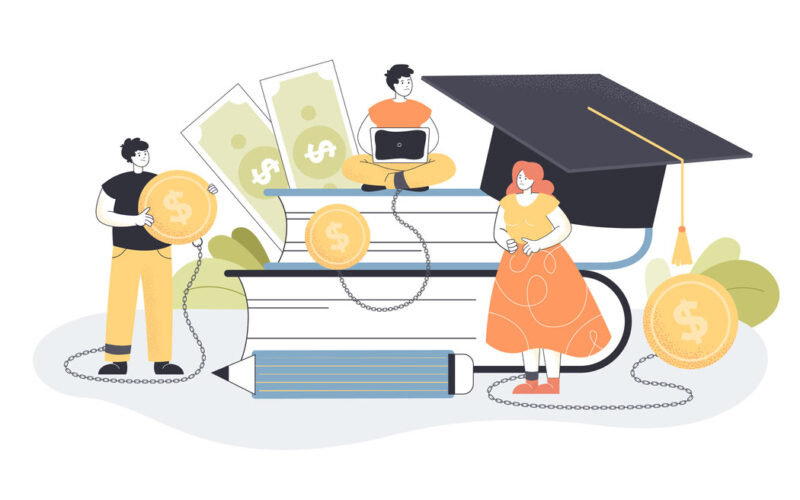Introduction
In this age, when academic credentials are so important, tuition fees are still a bottleneck when attending college or graduate school. Is it worth the large amount of money, and how will it affect your career path after graduation? We would like to discuss whether there is a solution to this problem.
The impacts of student loans
In the United States, 45 million people have $1.5 trillion in student loan debt. In New York City, 58% of students have debt when they graduate from public and private colleges, with an average debt of $30,346. As the amount of debt continues to rise, many are concerned that debt will delay important life choices. Although there is varying evidence, it appears that some people are changing career paths, dropping out of college, foregoing graduate school, postponing owning a home, and, in the case of women, delaying childbearing as a result of their debt (Zuber, 2020). As a whole, the study finds that low-income students continue to experience the greatest hardship in earning a college degree. Unstable family circumstances, poor-quality high schools, and other problems faced by low-income students exist even before loan debt is a problem (Scholarship America, 2019).
Are students’ loans worth it?
The difference in unemployment rates by education category is striking: the unemployment rate for high school graduates was 6.2%, for college graduates 3.5%, and for professional graduates 1.8% in 2021. Consequently, when asked, “Is it better to go to college and take on student debt to get a degree or not go to college?” the answer for the vast majority of individuals is that it is worth it (Pinkham, 2022).
What would students do if their loans were forgiven?
There were two surveys on what they would do if their loans were forgiven, both with nearly identical results: more than 50% said they would save to buy a house, and three-quarters said they would put that money into savings. Among graduates, nearly 53% said they would save for retirement; two-thirds said they would use that money to pay off other debts. About 21% also said they would marry early, and 19% said they would have children early (Kuperberg, 2021).
Conclusion
While student loans certainly affect the future, the question of whether they are worth it is up to the individual to do his or her best. If you are going to take on a lot of debt, you may as well concentrate on your studies and enrich your future life.
Reference
Kuperberg, A. (2021). The Difference Debt Makes: College Students and Grads on How Student Debt Affects Their Life Choices. [online] sites.utexas.edu. Available at: https://sites.utexas.edu/contemporaryfamilies/2021/03/24/college-student-debt-brief-report/ [Accessed 28 November 2022]
Pinkham, P.G. (2022). Are Student Loans Worth It? [online] Yale Insights. Available at: https://insights.som.yale.edu/insights/are-student-loans-worth-it#:~:text=%E2%80%9CIf%20the%20question%20is%20 [Accessed 28 November 2022]
Scholarship America (2019). The Far-Reaching Impact of the Student Debt Crisis | Scholarship America. [online] Scholarship America. Available at: https://scholarshipamerica.org/blog/the-far-reaching-impact-of-the-student-debt-crisis/ [Accessed 28 November 2022]
Zuber, K. (2020). How Does Student Loan Debt Affect College and Career Decision-making? [online] Rockefeller Institute of Government. Available at: https://rockinst.org/how-does-student-loan-debt-affect-college-and-career-decision-making/ [Accessed 28 November 2022]
